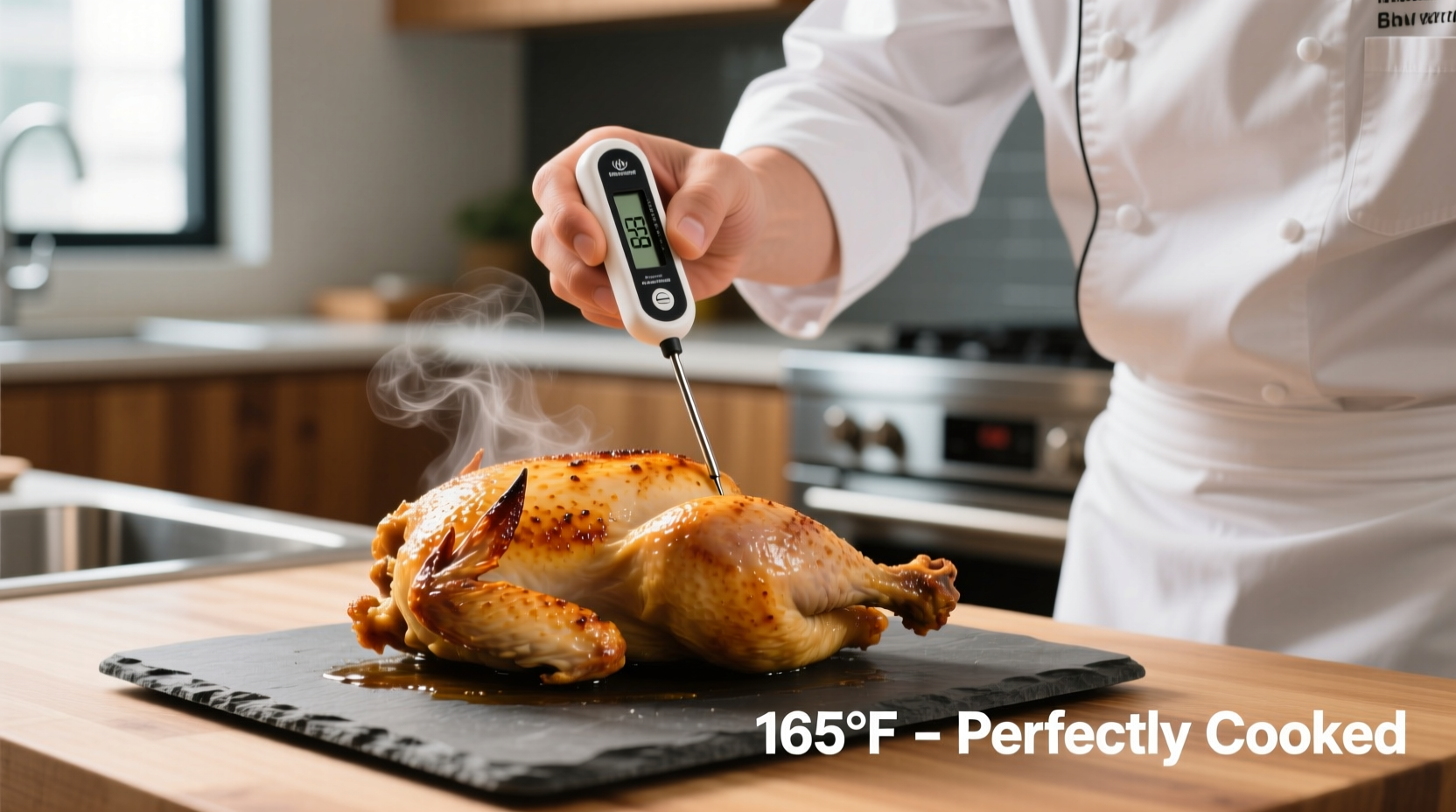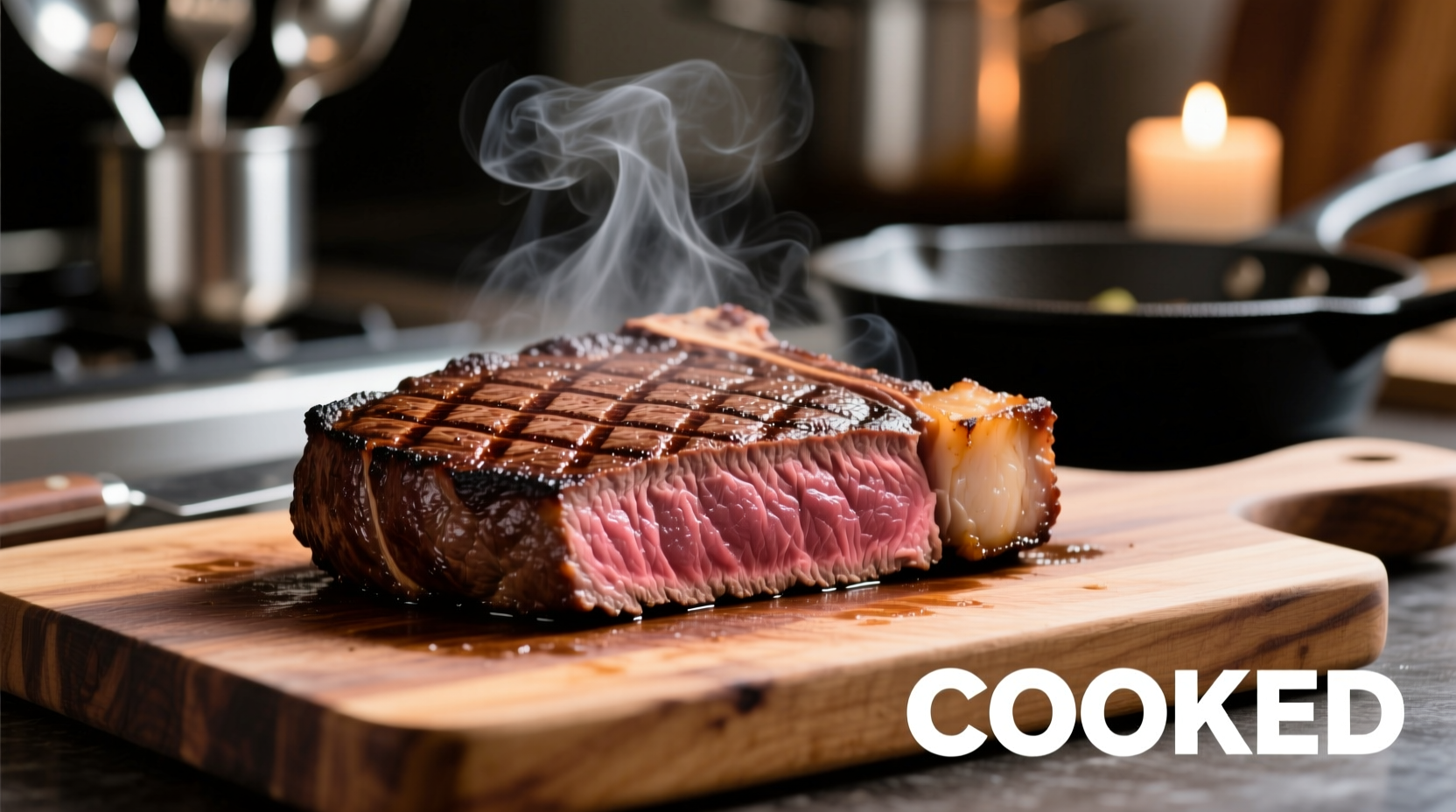"Cooked" primarily means food that has been prepared with heat, altering its chemical structure. In slang, it can mean exhausted, ruined, or under the influence of drugs. The culinary definition requires food to reach specific internal temperatures for safety.
Understanding what "cooked" means goes beyond simply knowing it relates to food preparation. Whether you're following a recipe, hearing slang on the street, or discussing food safety standards, this term carries multiple meanings that depend entirely on context. Let's break down exactly what "cooked" means across different situations so you can use and understand it correctly every time.
Breaking Down the Culinary Definition of Cooked
When discussing food preparation, "cooked" refers to any food that has undergone a transformation through the application of heat. This isn't just about making food taste better—it's a scientific process where heat causes chemical changes in food components:
- Proteins denature (like egg whites turning from clear to white)
- Starches gelatinize (making potatoes soft)
- Cell walls break down (softening vegetables)
- Pathogens are destroyed (making food safe to eat)
The U.S. Food Safety and Inspection Service specifies that "food is considered cooked when it reaches the minimum internal temperature necessary to destroy harmful bacteria." For example, poultry must reach 165°F (73.9°C) to be properly cooked and safe to consume.
Cooked in Slang: When It Has Nothing to Do With Food
Beyond the kitchen, "cooked" has evolved several slang meanings that have nothing to do with food preparation. These informal usages vary by region and context:
| Context | Meaning | Example Sentence |
|---|---|---|
| Exhaustion | Completely tired out | "After that marathon, I'm totally cooked." |
| Situation Ruined | Something is finished or ruined | "Our plans are cooked if it rains tomorrow." |
| Intoxication | Under the influence of drugs | "He got cooked at the party last night." |
| Preparation Complete | Ready or prepared | "The project is cooked and ready for presentation." |
How "Cooked" Evolved: A Brief Timeline
The word "cook" has an interesting linguistic journey that explains why it has multiple meanings today:
- 1300s: From Middle English "coken," meaning to prepare food with heat
- 1500s: First recorded use of "cook" as a noun for someone who prepares food
- 1800s: Slang usage emerges meaning "to prepare" in non-food contexts
- Early 1900s: "Cooked" begins appearing in criminal slang meaning "fabricated" or "altered"
- Mid-1900s: "Cooked" develops meaning of being intoxicated, particularly with marijuana
- Present day: Multiple meanings coexist depending on context

When Context Determines Meaning: Practical Guidelines
Knowing what "cooked" means requires understanding the context in which it's used. Here's how to determine which definition applies:
Culinary Contexts (When It Means Food Preparation)
Look for these indicators that "cooked" refers to food:
- Discussion of recipes, temperatures, or cooking methods
- References to raw versus cooked foods
- Food safety guidelines or nutrition information
- Professional kitchen environments
For example: "Cooked tomatoes have higher lycopene availability than raw tomatoes" clearly refers to the culinary process.
Non-Culinary Contexts (When It Means Something Else)
These clues suggest "cooked" is being used in a non-food sense:
- Describing personal state ("I'm cooked after that workout")
- Talking about plans or situations ("Our chances are cooked")
- Informal conversation among friends
- Music lyrics or casual writing
For example: "My phone is cooked after I dropped it in water" uses "cooked" to mean ruined or non-functional.
Common Misunderstandings About "Cooked"
Many people confuse these aspects of what "cooked" means:
- Cooked vs. done: "Cooked" refers to the process, while "done" refers to completion. Food can be cooked but not done (undercooked), or cooked past the ideal point (overcooked).
- Cooked vs. heated: Simply warming food isn't cooking—it requires chemical changes. Reheating leftovers makes them hot but doesn't "cook" them further.
- Cooked vs. raw: Some foods like sushi or steak tartare are intentionally served raw, but they're still considered "prepared" foods.
The USDA Food Safety and Inspection Service emphasizes that "properly cooked" specifically means food has reached temperatures sufficient to destroy pathogens, not just that it's been exposed to heat.
Practical Applications: Using "Cooked" Correctly
Now that you understand what "cooked" means in various contexts, here's how to apply this knowledge:
In the Kitchen
- Always verify internal temperatures with a food thermometer
- Understand that "cooked" doesn't always mean "ready to serve"—some dishes require resting time
- Recognize visual cues of properly cooked foods (clear juices in poultry, flakiness in fish)
In Conversation
- When someone says "I'm cooked," ask for clarification if unsure whether they mean tired or in trouble
- Avoid using culinary meanings in professional settings where slang might be misinterpreted
- Be aware that "cooked" as slang for intoxicated is informal and potentially inappropriate in many settings
Understanding what "cooked" means in different contexts prevents embarrassing misunderstandings. Imagine asking a chef if the "cooked" salmon is "cooked" when you really want to know if it's properly prepared—that's confusing even for native speakers!
Final Thoughts on What "Cooked" Really Means
"Cooked" has evolved from a simple culinary term to a versatile word with multiple meanings. The key to understanding what "cooked" means in any situation is context. In food preparation, it refers to the scientific transformation of ingredients through heat. In slang, it communicates states of exhaustion, ruin, or intoxication. By recognizing these different usages, you'll communicate more effectively whether you're following a recipe, discussing food safety, or just chatting with friends.











 浙公网安备
33010002000092号
浙公网安备
33010002000092号 浙B2-20120091-4
浙B2-20120091-4